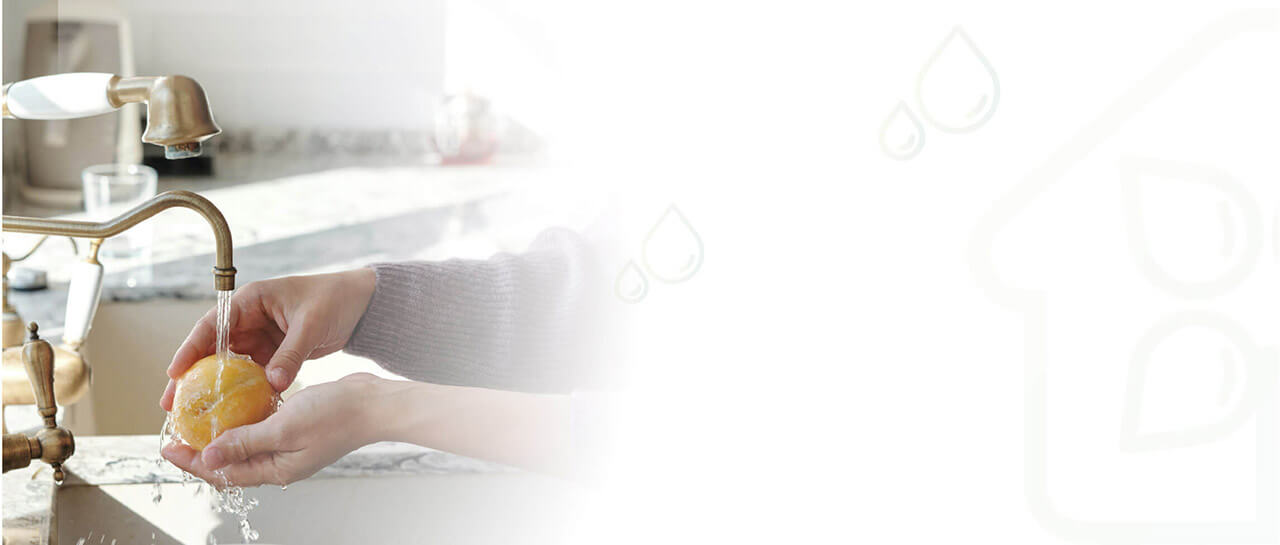
Whole House Water Purification System in Georgia
Request Free Water TestWhat is a water purification systems for home?
A home drinking water purification system is a device with a set of processes designed to further refine the quality of water and enhance it for human consumption.
The water purification process involves filtration to remove solid particles, disinfection to kill microorganisms like bacteria and viruses, and in some cases, descaling to reduce water hardness.
The end result is purified water free of impurities and meeting quality standards for human consumption, whether it comes from natural sources, tap water, or even recycled water.
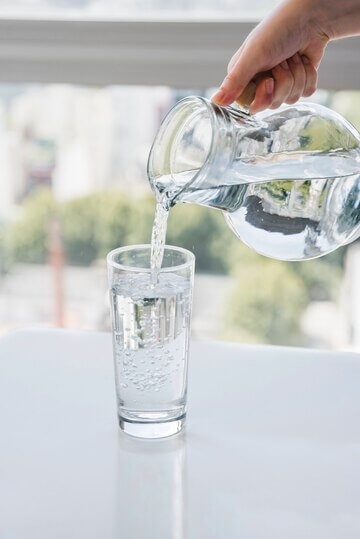
Importance of water purification
This process is crucial to ensure the health and safety of household members by removing contaminants such as chemicals, minerals, solids, and bacteria. It also reduces harmful microorganisms in water, making it safe and suitable for drinking.
The quality of water supply can vary depending on its source, whether municipal or well water, and some supplies may contain more contaminants than others.
In response to this, home water purification systems are designed to remove or reduce the levels of various substances present in water.
Additionally, water purification may include producing "alkaline water," which is characterized by having a higher pH than regular water and is considered beneficial for health due to its alkalizing properties.
Water purification benefits
Installing a water purification system at home allows you to save money by avoiding the purchase of bottled water and contributes to environmental protection by reducing single-use plastics.
- Moreover, it improves water quality by removing contaminants that can damage appliances and pipes, thus extending their lifespan, preventing corrosion problems, reducing limescale buildup, and other mineral deposits.
- Purified water also tends to have a better taste and odor, as substances that can negatively affect these characteristics are removed or reduced.
- Water purifiers can reduce the smell and taste of chlorine, as well as eliminate odorless and tasteless gases like arsenic.
- This leads to improved skin appearance, hair appearance, clothing durability, and electricity savings if you have a hot water tank.
- Additional benefits can also be obtained, such as reducing the presence of heavy metals and other chemical compounds, contributing to higher quality and purity of the water used in the home.

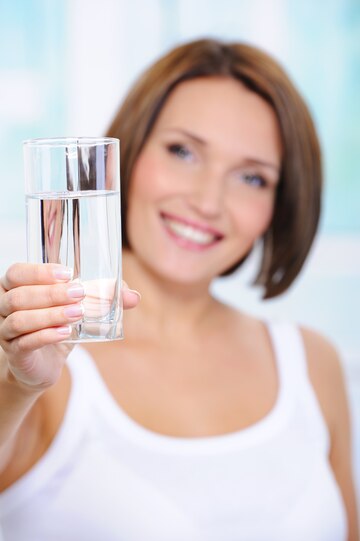
Types of Water Purification
The state of Georgia has various water sources, from rivers and lakes to underground aquifers.
However, many of these sources are plagued by contamination problems, caused by industrial runoff, agricultural pesticides, and aging infrastructure.
Ensuring access to clean and safe water remains a pressing concern for communities in Georgia, United States. Therefore, the types of water purifiers or softeners installed in a home will depend on the water source that supplies your home.
If your home uses water from the municipal supply, a comprehensive softening system designed to reduce common levels of chloramine, chlorine, and hardness in Georgia municipal water is recommended.
In the case of water supply from a well, in addition to the mentioned softening system, a water filtration system with air injection for effective removal of iron, manganese, and sulfide is required, without the need for chemical products.
Home Water Filter and Softener System Cost

At Ekopurify, we care about the health and well-being of your family.
Access to quality drinking water is essential for maintaining a healthy life, as water is crucial for hydration and proper bodily functions.
We have the most advanced residential water purification system, providing additional treatment to drinking water used at home, whether municipal water or well water.
What type of water source reaches your home?
Discover how we can help you protect your family's health and enjoy clean, safe water every day!
To provide you with an accurate quote for our services, a free water test in your home is necessary.
Water testing in Georgia
A drinking water analysis is a chemical process in which a sample of drinking water from the home is extracted to perform an effective and rigorous assessment of its quality.
The study of the sample helps us determine the quality and how to improve it, so that it is much more beneficial for our health.
Our expert water analysts perform the entire procedure in your home and at no cost.
Request Water TestExperience the difference with our simple three-step solution for better water.
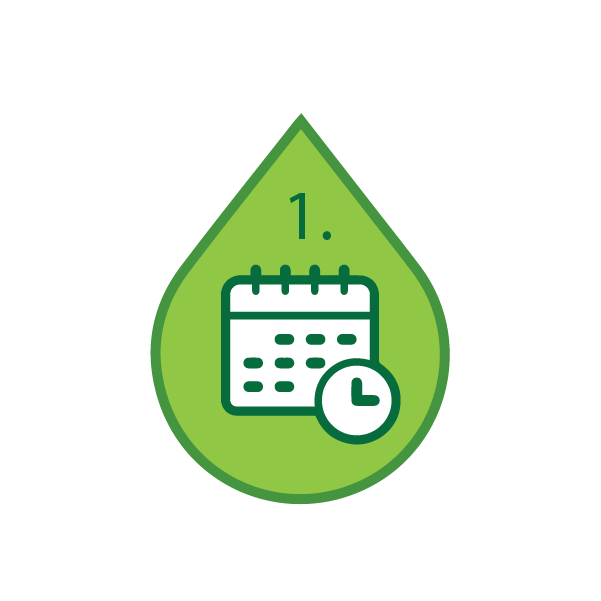 Schedule
Schedule
Schedule a free water analysis online or by phone.
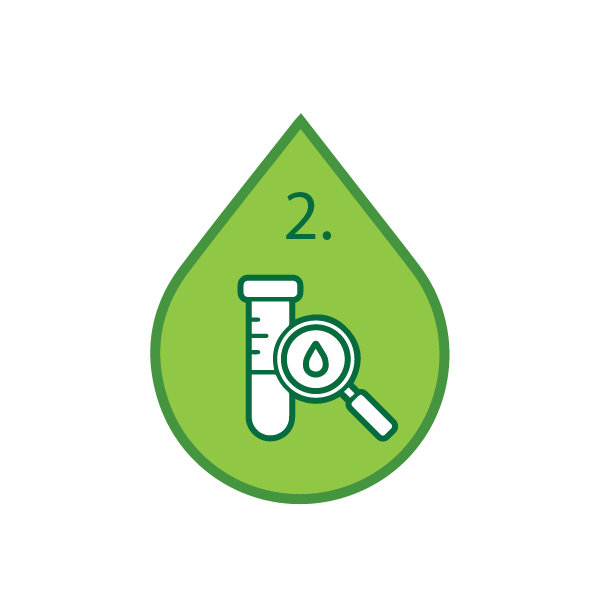 Home Test
Home Test
Arrange a visit from your local water expert to perform a water test at home.
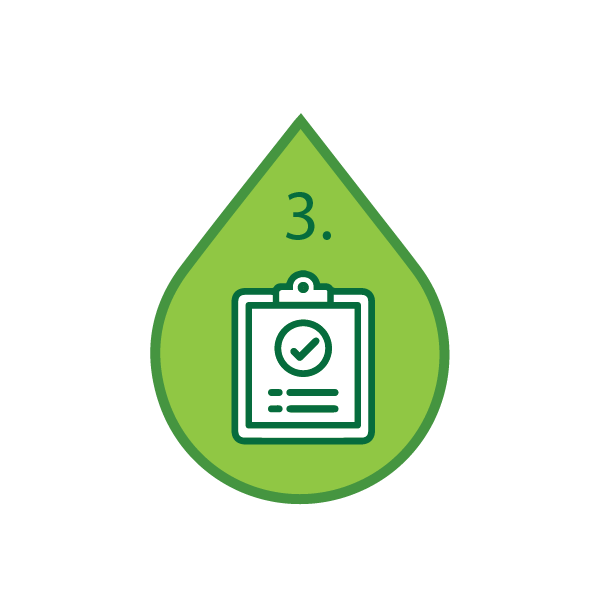 Results and Solutions
Results and Solutions
In just a few minutes, they will provide you with a detailed report and available solutions and a program to help you have clean water.
Water Problems
These are some of the most concerning alerts for water contamination, according to the United States Environmental Protection Agency (EPA).
The EPA recommends evaluating water at home to identify potential contaminants and taking necessary steps to purify the water to ensure its safety and quality. Below are descriptions of some common water issues that may require immediate attention and action:
Arsenic
Arsenic is a naturally occurring element that can leach into groundwater. Consuming water with high levels of arsenic over time can lead to serious health issues.
Bacteria
Bacteria in water can cause various illnesses, including stomach cramps, diarrhea, and vomiting. Common bacteria include E. coli and coliform bacteria.
Chloramine
Chloramine is a disinfectant used in some water treatment plants. While it helps kill bacteria, high levels can lead to health issues and affect the taste and smell of water.
Fluoride
Fluoride is added to water supplies to help prevent tooth decay. However, excessive fluoride intake can lead to dental fluorosis and skeletal fluorosis.
Iron/Rust
High levels of iron in water can lead to rusty or discolored water, staining of clothes and fixtures, and a metallic taste.
Lead
Lead can leach into water from pipes and plumbing fixtures, especially in older homes. Consuming water with high levels of lead can lead to serious health issues, especially in children.
Low pH (Acid Water)
Low pH water, also known as acid water, can be corrosive to pipes and plumbing fixtures, leading to metal leaching and potential health issues.
Nitrate
Nitrate in water can come from agricultural runoff and septic systems. High levels of nitrate can be harmful, especially to infants, and can lead to methemoglobinemia or "blue baby syndrome."
Tannin
Tannins are organic compounds that can give water a yellow or brown color and a bitter taste. They are typically harmless but can affect water quality.
Chemical Contamination
Chemical contamination in water can come from various sources, including industrial discharge, agricultural runoff, and improper disposal of chemicals. Depending on the chemical, it can lead to various health issues.


